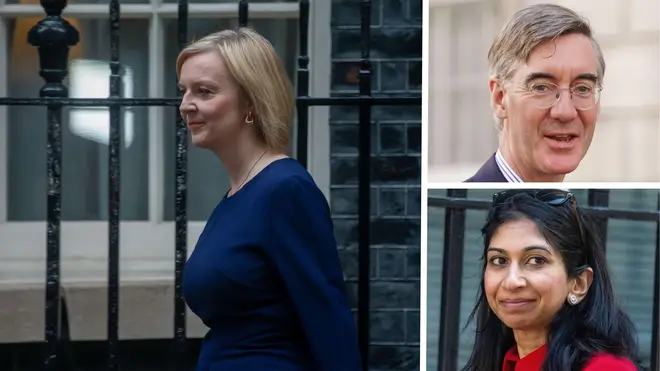
Nick Abbot 10pm - 1am
26 September 2022, 11:28 | Updated: 26 September 2022, 12:04

Liz Truss is facing a backlash from cabinet members just weeks after becoming Prime Minister as she prepares to make a U-turn on immigration rules in a bid to boost the economy.
The Prime Minister is reportedly pushing for reform of the current visa system to ease the national shortage of workers and allow more foreign workers to enter Britain.
After Brexit, the UK introduced a new immigration system on January 1, which ended free movement of people between the UK and the EU.
In the coming weeks Ms Truss will make changes to the shortage occupations list and raise the cap on seasonal agricultural workers, so that key sectors can recruit more overseas staff.
Read more: Pound slumps to record low against dollar
Read more: Shadow Chancellor slams Truss and Kwarteng like ‘gamblers in a casino'

Shadow Chancellor's stark cost of living warning
It has also been suggested that she could ease the requirement to speak English so that more foreign workers qualify for a visa.
However, this proposal has been met with strong resistance from her cabinet including brexiteers Suella Braverman, the home secretary, and trade secretary Kemi Badenoch.
Jacob Rees-Mogg, the business secretary, has told colleagues he would support the changes only if they were shown to increase GDP per capita.
A senior government source said: “There is a view within the Treasury that migration is good for growth. That is a view that appears to be shared by the PM and the chancellor. We cannot tear up our immigration rules. People who voted for Brexit want to see controlled migration.”
On Friday Kwasi Kwarteng, the chancellor, used his mini-budget to deliver the biggest package of tax cuts in 50 years.
He announced plans to abolish the highest rate of income tax. He promised to focus on growth “even where that means taking difficult decisions”.